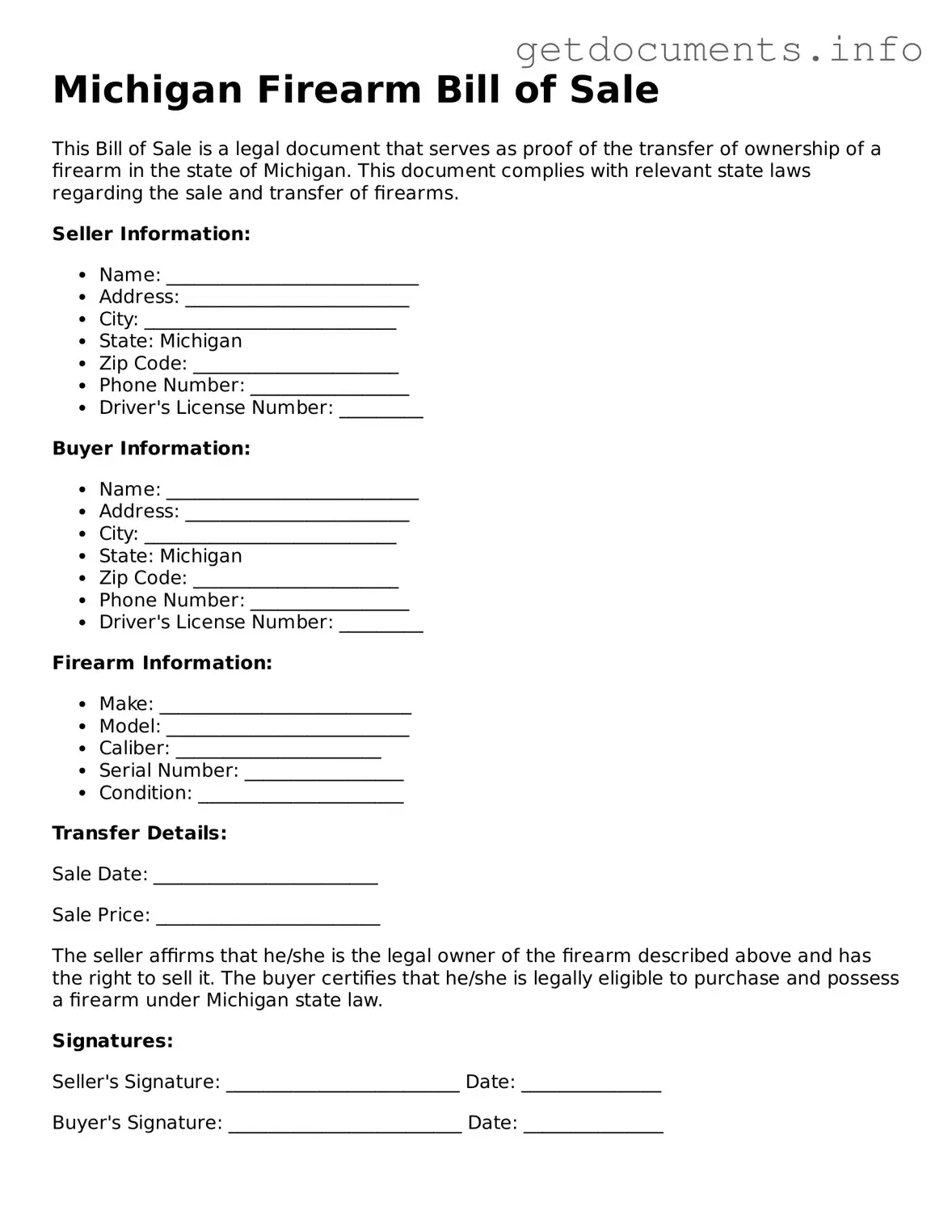Free Firearm Bill of Sale Template for Michigan
The Michigan Firearm Bill of Sale form is a crucial document that facilitates the legal transfer of firearm ownership between individuals. This form serves to protect both the buyer and seller by providing a written record of the transaction, ensuring compliance with state laws. Understanding its importance can help you navigate the complexities of firearm sales in Michigan.
Ready to ensure your firearm transaction is legally sound? Fill out the form by clicking the button below.
Access Firearm Bill of Sale Editor

Free Firearm Bill of Sale Template for Michigan
Access Firearm Bill of Sale Editor
Got places to be? Complete the form fast
Fill out Firearm Bill of Sale online and avoid printing or scanning.
Access Firearm Bill of Sale Editor
or
⇩ PDF File
